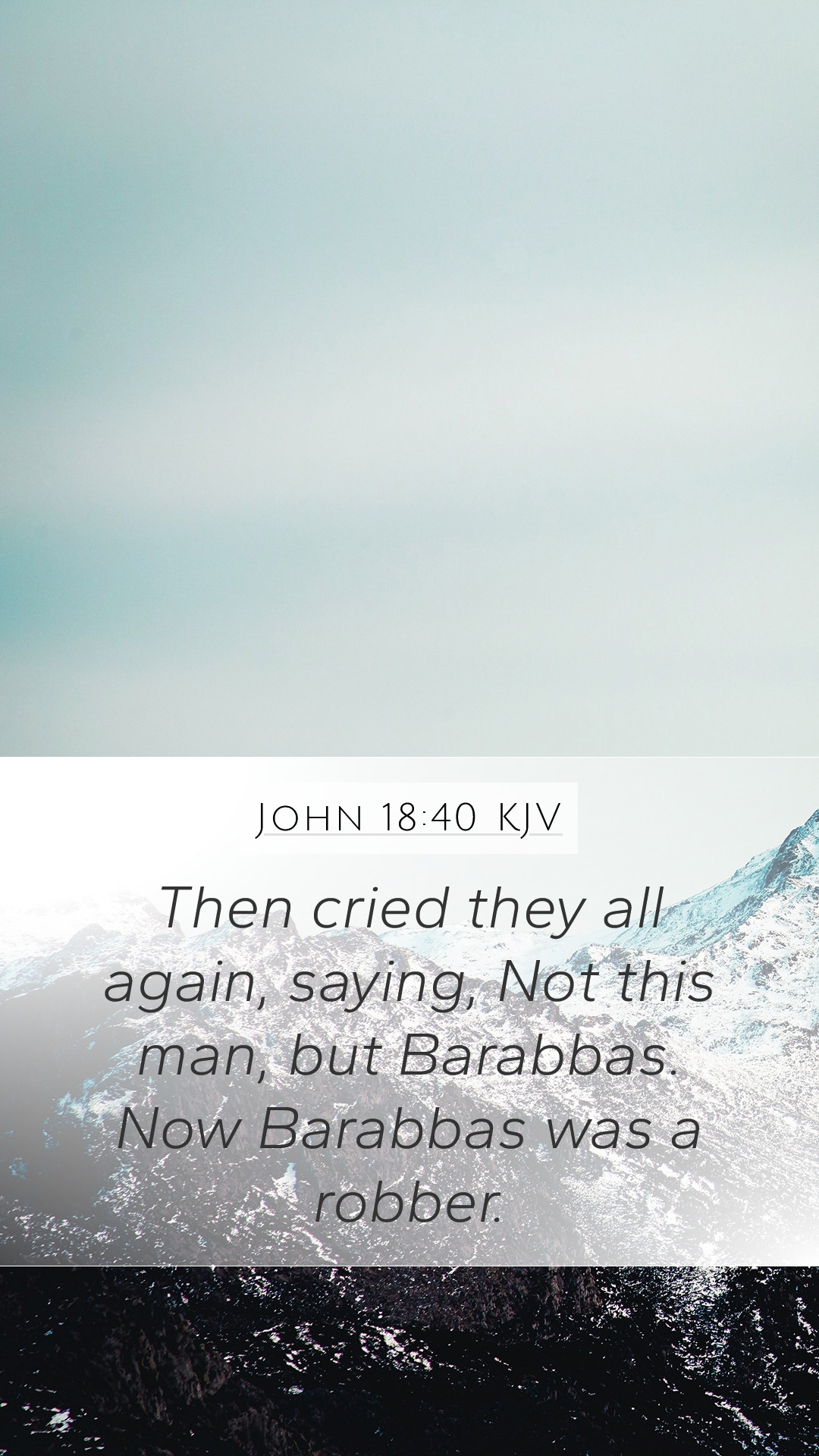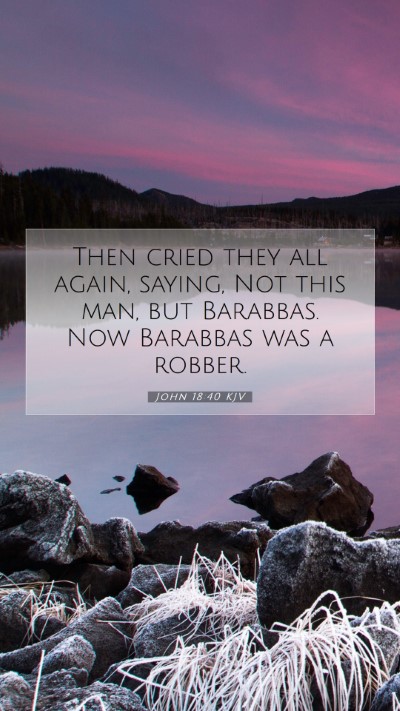Understanding John 18:40
John 18:40 states, "Then cried they all again, saying, Not this man, but Barabbas. Now Barabbas was a robber." This event occurs during the trial of Jesus, where the crowd calls for the release of Barabbas over Jesus. The following commentary interpretations highlight the significance of this verse.
Bible Verse Meanings
The choice made by the crowd reflects a profound misunderstanding of justice and mercy, emphasizing themes of sin, guilt, and societal choices.
Bible Verse Interpretations
- Matthew Henry: Henry emphasizes the tragic irony in the crowd's choice, pointing out that they prefer a notorious criminal over the innocent Savior. This reveals the depths of human depravity and the fulfillment of prophecy, as Jesus would be condemned in the place of the guilty.
- Albert Barnes: Barnes notes the political pressures faced by Pilate, indicating that the decision was influenced by a desire to appease the crowd and avoid unrest. Barnes highlights how Barabbas symbolizes rebellion and defiance, contrasting the obedient nature of Jesus.
- Adam Clarke: Clarke elaborates on the character of Barabbas, suggesting that the choice between Jesus and Barabbas illustrates the fundamental choice between good and evil. He remarks on the crowd's spiritual blindness, as they reject the Messiah and choose a criminal.
Bible Verse Understanding
This verse illustrates the conflict between worldly desires and divine truth. It serves as a reminder of the consequences of choosing sin over salvation and invites readers to reflect on their own choices.
Bible Verse Explanations
Exploring the historical and social context sheds light on why the crowd would choose Barabbas. The expectation of a political Messiah influenced their decision, leading them to reject the spiritual salvation offered by Jesus.
Scripture Analysis
John 18:40 can be analyzed alongside several key themes:
- The Nature of Freedom: Barabbas represents a false idea of freedom—freedom from the consequences of sin rather than true liberation that comes from Christ.
- Humanity's Rejection of God: The choice serves as a poignant reminder of how humanity often rejects divine guidance in favor of self-serving choices.
- Prophecy Fulfillment: This event is seen as a fulfillment of the Old Testament prophecy regarding the rejection of the Messiah.
Biblical Exegesis
In-depth biblical exegesis reveals the layers of thought in this verse, illustrating the spiritual implications of preferring a worldly figure over the divine. Jesus' reaction and the silence of Pilate demonstrate the gravity of the moment.
Bible Study Insights
For those in Bible study groups or engaging in online Bible study, this verse can lead to discussions about the nature of sin and choice. Consider how to apply these understandings to modern life.
Meaning of Bible Verses
The message encapsulated in John 18:40 extends beyond its historical context, urging believers to contemplate the choices they face today. Are we, like the crowd, swayed by societal pressures? Or do we stand firm in our faith?
Understanding Difficult Bible Passages
This passage can be particularly challenging to interpret within the larger narrative of Jesus’ passion. It serves as a catalyst to discuss broader themes of betrayal, justice, and redemption.
Cross References
- Matthew 27:20 - The chief priests and elders persuaded the multitude to ask for Barabbas and destroy Jesus.
- Mark 15:11-15 - Highlights the crowd’s choice for Barabbas and the role of Pilate.
- Luke 23:18-25 - Details the crowd’s outcry for Barabbas and the release by Pilate.
Application
This verse calls for personal reflection and examination. As believers, we are invited to assess our own decisions—do we, at times, choose what is familiar and comfortable (like Barabbas) over what is true and just (like Jesus)?
Conclusion
John 18:40 serves as a powerful reminder of the nature of human choices and the eternal significance of siding with Christ. Through understanding this verse, we gain insight into our own spiritual journeys and the importance of discernment in our lives.


